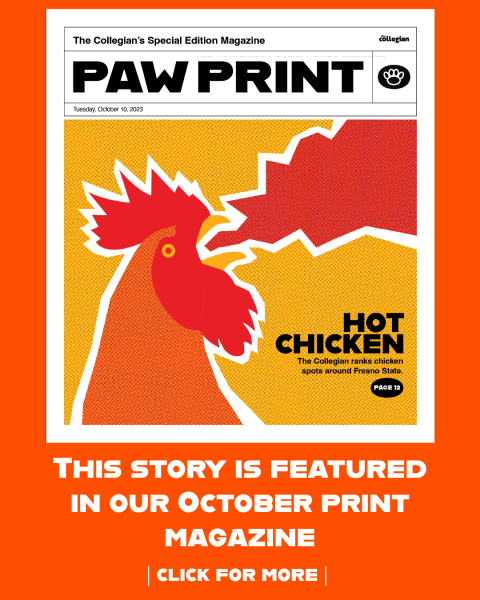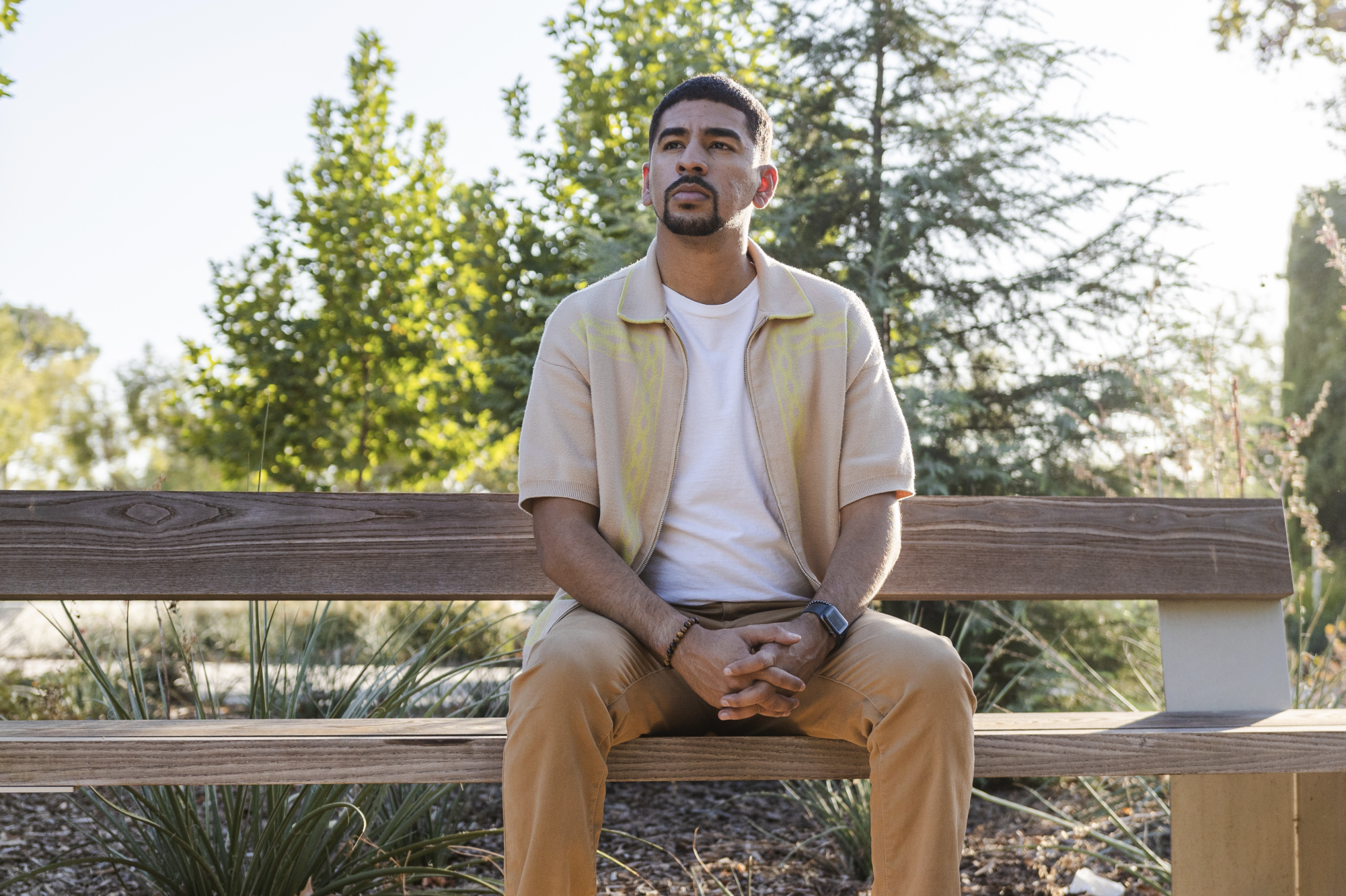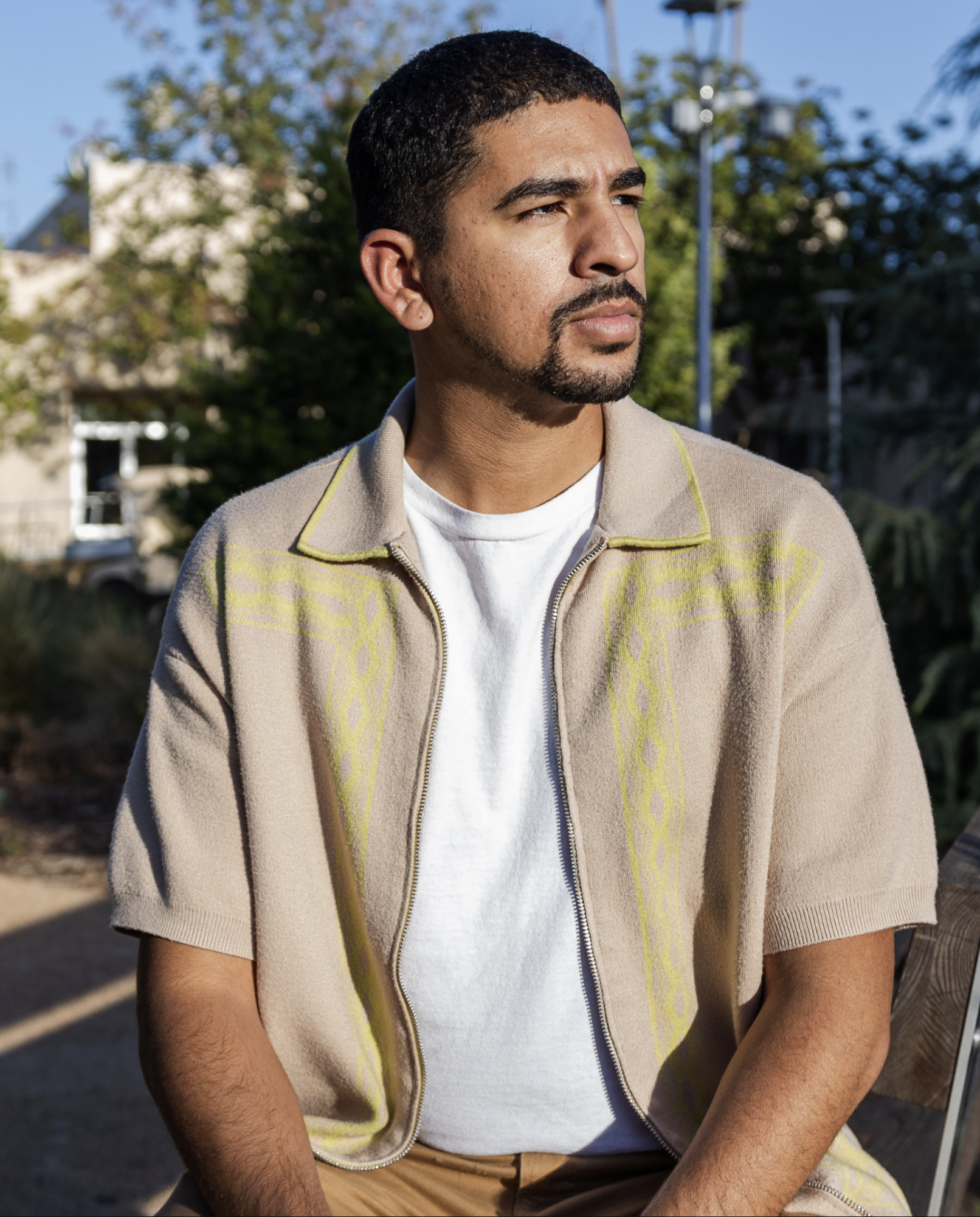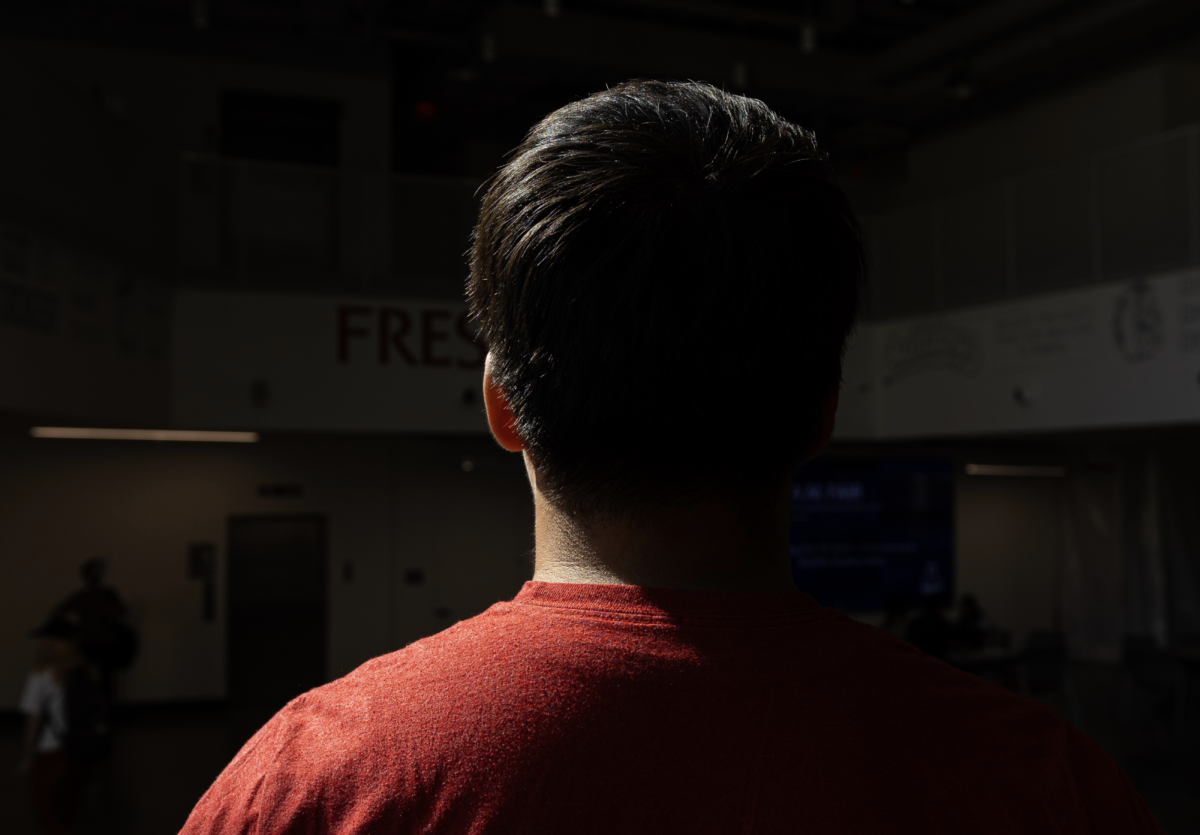Richard Puerta, the youngest of five children, was born in Mexico. When he was six months old, his mother committed suicide. She suffered from postpartum depression, a type of depression that happens after giving birth.
Before her death, Puerta’s mother disposed of his birth certificate and failed to register him at a register office in Mexico (Oficinas del Registro Civil). Now, as a soon-to-be college graduate at Fresno State, Puerta’s future and livelihood are at a disadvantage due to the consequences of being stateless, meaning he cannot claim citizenship of any country.
“Besides the people who raised me, the person who has impacted me the most would be my mother,” Puerta said. “Ever since that moment, my life and my siblings’ lives have changed drastically.”
Each of the siblings had their own journeys arriving in the United States. Puerta’s eldest sibling, Miguel Puerta, first arrived in 1991 while the rest of the siblings stayed in Mexico. In Mexico, Puerta and his other siblings shuffled near the Mexico City region to be taken care of by family members.
Puerta and I have similar stories of coming to a new country at a young age. I was born in El Progreso, Honduras, and emigrated to the U.S. when I was 5-years-old, whereas Puerta was 2 years old when he first arrived in the U.S. for the first time.
 Puerta and I share some of the same struggles. We both had to quickly adjust to a new language and culture while also learning how to be a child.
Puerta and I share some of the same struggles. We both had to quickly adjust to a new language and culture while also learning how to be a child.
However, what sets us distinctly apart is a piece of paper: a birth certificate that includes my name, gender, date of birth and place of birth.
Thanks to this document, I am one of hundreds of thousands of beneficiaries of the Deferred Action for Childhood Arrivals (DACA) program, also known as the Dream Act. DACA allows for temporary relief from deportation to young individuals who migrated to the U.S. as children, and provides them with permission to work and go to school.
Through DACA, I’ve been able to get a Social Security number, obtain a driver’s license, receive scholarships, travel within the country and be allowed to find work. In Puerta’s case, he is not qualified for any of these services because he is stateless.
Though he faces daily challenges with no feasible solution in sight, Puerta remains calm about his situation. He doesn’t see himself as being any different from the people around him. In fact, Puerta lives a normal life.
“I just see myself as any of the other students,” Puerta said. “There’s no difference between me and my best friend.”
Puerta’s early beginnings
Before Puerta began his journey as a journalism major at Fresno State, the laid-back 21-year-old had a stellar high school experience at Golden West High School in Visalia.
During his time as a Trailblazer, Puerta was an outstanding student who received satisfactory grades and was involved in activities outside the classroom. He was a two-sport athlete, participating in the swimming and water polo team and was the vice president of the Associated Student Body.
In his senior year of high school, Puerta won the race for homecoming king. For Puerta, taking the crown home was worth more than a popularity contest amongst his classmates. Instead, it provided Puerta with a sense of identity and belonging, a feeling he has been chasing since a young age.
“That’s when I realized that I am a part of something,” Puerta said. “That moment was probably one of my favorites in my high school career.”
Puerta’s earliest memories of life were in Chowchilla, a rural town 39 miles north of Fresno, where his uncle, Richard Puerta Sr. [this is also an assumed pseudonym] raised him alongside his partner.
As a young kid growing up in Chowchilla, Puerta Jr. remembers spending time with friends at a local daycare. His uncle would drop him off early at the daycare and then Puerta Jr., and his friend would walk to school together where they created a strong bond.
“Although I only saw them because of the daycare, we didn’t know that. We were just friends enjoying the time we had together,” Puerta Jr. said.
However, raising Puerta Jr. wasn’t easy because Puerta’s uncle was in his early 20s, working a full-time minimum wage job and taking general education classes at Merced College, while learning how to care for a newborn. Puerta Sr. had to constantly ask for help on taking care of the toddler while making ends meet to pay for the daycare fees.
“My nights consisted of calling my friends and colleagues to see who would be able to take care of this baby for me,” Richard Puerta Sr. said. “Making minimum wage does not allow you to afford daycare. I would take him to San Joaquin and Modesto. Sometimes, I would take him to the lady across the apartments.”
Two decades later, Puerta Jr. is grateful for the sacrifices that Puerta Sr. made for him.
“My uncle was one of the greatest people that have ever had an impact on my life,” Puerta said. “He had to essentially give up his college life and help me and my brother out to raise us and he had to work at JCPenney to support us.”
After moving to Visalia, the relationship between Puerta Jr. and Puerta Sr. blossomed as the two shared similar interests, bringing them closer together.
“He loves comics, like I do. Plus going to the movies. He was my movie buddy. We would go Thursday nights at Galaxy watching the movie premieres at 10 p.m.,” Puerta Sr. said. “He’s my mini me. We call him little Richard.”
Military dreams
DACA is not enough to fix my undocumented status. Since I was 18, my biggest goal has been to join the U.S. Navy and serve the United States, a country that I have known for most of my life. However, due to my immigration status, I am ineligible to join the service.
Now as a 25-year-old, my dream to serve this country is still alive, but this time, the career path I want to pursue in the Navy is much more attainable, as a mass communication specialist. Before journalism was introduced into my life two years ago by my mentor, Claudia Melendez, a longtime journalist, I was a photographer with eight years of experience.
Journalism has provided purpose in my life, and my multimedia skills have reassured me that I belong in this field. Before transferring to Fresno State from Monterey Peninsula College (MPC) in the fall of 2021, I was a student at the community college level for seven years. I graduated from Alisal High School in 2016, and the thought of pursuing a career was not in sight, so attending community college made sense.

Being a Dreamer has presented me with many opportunities such as traveling within the country, attending a higher education institution and receiving a scholarship. However, DACA does not solve all the issues that I face as an undocumented student. For example, I don’t have the right to vote, even though I have lived in this country for 20 years. Additionally, I am also unqualified to receive federal funding to further my education.
Still, I have found opportunities that will help my chances of joining the Navy. This past summer, I lived in New York City for three months as an intern with the Port Authority of New York and New Jersey, a bi-state transportation agency. I am a multimedia reporter for The Collegian and I have another part-time job as a media relations service aide at the Fresno Yosemite International Airport.
The Navy is the biggest goal on my checklist, but my immediate future includes applying to graduate school to further my education in journalism.
What is stateless?
Although he faces his daily challenges of being stateless and having no feasible solution, Puerta remains free and easy about his situation. Being stateless wasn’t an issue for Puerta until he was in high school when he noticed he could not accomplish a milestone like any other high school student, getting a driver’s license.
“When you turn 16, that’s when you get your license and when you can start to drive. I was looking around, and I was like, ‘Damn, I can’t do that,’” Puerta said. “I have to either wait for my parents to come pick me up, and they were always busy, or even ask for rides.”
Puerta currently lives with roommates who help him by providing him rides to school or to the grocery store. Being stateless has yet to bother him much due to his easy going personality; one roommate in particular has taken notice of Puerta’s ambition.
“It seems like he wants to work at a news station, and in all honesty, it seems like he could be able to do it eventually,” said Juan Valenzuela, Puerta’s best friend from high school. “I don’t know how he does it, but everything always ends up working in his favor in the end.”

According to the United Nations, a stateless person is anyone who does not have the nationality of any country. As a result, Puerta lacks access to identification documents, such as a birth certificate, Puerta is unable to apply for and obtain a California Identification (ID) Card, lacks access to employment or health care and is unable to leave and return from the country.
“The State of California and the federal government have made allowances for people who are undocumented, particularly in California, to access higher education, certain jobs, driver’s licenses and other opportunities,” said Jessica Smith Bodadilla, a Fresno-based immigration attorney. “But without some proof of who you are and where you come from, you can’t access those easily, and in most cases at all.”
Statelessness is a common issue worldwide but it is rarely addressed in the United States. According to the UN Refugee Agency, at the end of 2022, 4.4 million stateless people were residing in 95 countries. However, the actual global number is estimated to be higher due to unreported cases.
As an immigration attorney for the past 21 years in Fresno and New York City, Bodadilla said statelessness cases are usually found in people from Middle Eastern countries such as Palestine who were part of the violent birth of Israel in 1948, leading to a significant displacement of Palestinians.
Though many people can live a new life, being stateless haunts them. The greatest hardship of being stateless is not being granted fundamental human rights anywhere. They face restrictions on domestic travel; it is difficult to obtain a driver’s license, which makes it hard to find a job without documentation of who they are, and they may not be granted fundamental human rights.
In Puerta’s case, traveling can be a challenge. If he wishes to move out of state after graduation because he landed a job, it would pose some difficulty. In addition, signing a lease to an apartment is impossible because he can’t show proof of documentation, putting him at a disadvantage in every way possible.
Discovering my roots
On Nov. 15, I will return to my home country of Honduras after 20 years.
Through the California-Mexico Study Center, a non-profit organization based in Long Beach, I will have the opportunity to study abroad in Honduras for a month and a half and then travel to Mexico City in January. The program is designed to allow DACA recipients to return to their home countries and research their cultural identity. At the end of the trip, I must write a 10-page ethnographic paper detailing my experiences before returning to the U.S.

I learned about this once-in-a-lifetime opportunity through Samuel Contreras, an assistant professor in Fresno State’s Media, Communications and Journalism department. When he first told me about the trip and its logistics, I couldn’t believe such an opportunity for Dreamers existed. I knew I would regret it for a long time if I didn’t take advantage of this opportunity. However, the issue was that the total cost of the trip was $5,000, which included housing, meals, local transportation while in Mexico and the documents I need to return to the country.
The price of the trip was daunting, but a cousin who lives in Florida suggested I open a GoFundMe account to raise funds. So I did and successfully collected the money within two months. Fundraising such an amount proved that nothing is impossible when you have a strong network of people rooting for you, and I am forever thankful for that.
Before this trip, the opportunity to return to my home country was never an option. Returning home and learning about my culture will be a much-needed healing experience. For much of my life, the American culture and way of living are all that I’ve known. I often daydream about reconnecting with my roots and family members and learning about Honduran culture. Most of the time, this thought is powerful in that it makes me emotional because visiting is a feeling I’ve been chasing.
While in Honduras, I plan to visit my parents’ hometowns. My father grew up in a small community called Omonita near El Progreso, a major city in northern Honduras. My mother is from Arenal, a humble farm town about 150 miles west of El Progreso. Both of my parents never received an education past middle school.
I am not sure how I will react once the aircraft lands at the San Pedro Sula Airport in Honduras, but one thing is for sure: I will return to the U.S. as a completely new person with a different perspective on life. Returning to my roots and witnessing firsthand the everyday Honduras experience will provide me with an appreciation for how blessed I am to have the opportunities presented in my life. In contrast, in Honduras, those opportunities aren’t easy to come by.
Obtaining documentation
Over the years, Puerta has tried working with the Mexican consulate in Fresno to find any means of obtaining a birth certificate, but doing so is challenging.
To obtain a Mexican birth certificate from the register office, Puerta has to complete DNA testing to verify and match a paternal or maternal relationship with a Mexican citizen. In Puerta’s case, his mother is deceased, and his father was never part of his life, creating an unrealistic situation to match any genetics.
When Puerta first migrated to the Central Valley as a toddler, his uncle had the opportunity to help him obtain a birth certificate as a child, the risk was not a chance he would take for Puerta’s well-being.
To obtain any documentation to prove who Puerta was, he must return to Mexico. However, returning to Mexico created the chance that Puerta could not return to the U.S.
“I couldn’t risk that, so that’s why I did not pursue that,” Puerta’s uncle said. “The consulate and immigration didn’t provide any other resources or help.”
Working with the Mexican consulate is not Puerta’s last hope in obtaining proper documentation. At Fresno State, Diana Rea Flores is a Dream Success Center counselor who assists AB540, undocumented and DACA students with the necessary resources to further their education.
Over the past months, Flores and Puerta have tried to find a solution. Puerta’s case differs from what Flores has seen in her career as a counselor since this is her first encounter with such a complicated matter, but she is confident that things can turn around.
“It’s challenging, but it’s not impossible. It might take time. But again, it’s not impossible,” Flores said.
Flores was shocked when she first heard about Puerta’s case due to his calm demeanor. For someone with so much to gain, yet the only hurdle holding him back is a birth certificate, Puerta’s approach to life is in peaceful strides.
“Whatever he has gone through in the past, he still seems optimistic,” Flores said. “I’m amazed that he looks like such a happy individual, regardless of his situation.”
Puerta and I have the same hunger to strive in life, regardless of our circumstances. I have more opportunities due to my DACA status. For the foreseeable future, there is no potential pathway for Puerta to obtain a birth certificate. In the meantime, Puerta is focusing on obtaining that illusive piece of paper. Neither the lack of a birth certificate nor a green card will stop us from reaching our potential.
Update: This story was corrected to reflect the date of the founding of Israel in 1948.





